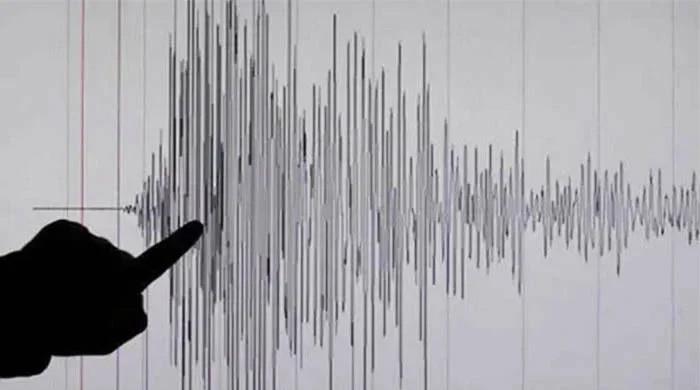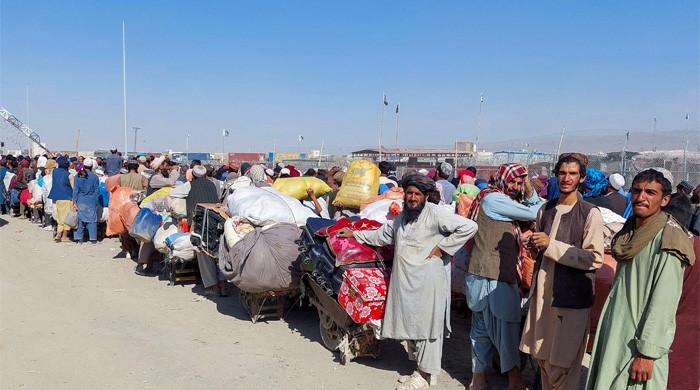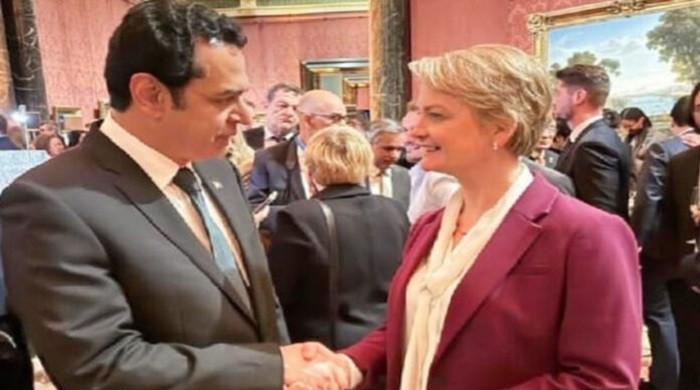Journalists' protests against Peca law enter day two
Journalists across the country have held protests, symbolic hunger strike camps against contentious Peca law
February 13, 2025

- BUJ vows not to accept Peca law at any cost.
- KUJ holds hunger camp at Karachi Press Club.
- Participants of protest raise slogans against law.
The protests held by journalists against Prevention of Electronic Crimes (Amendment) Act (Peca), 2025, on a call by the Pakistan Federal Union of Journalists (PFUJ) entered second day on Thursday.
Journalists have also challenged the law in Supreme Court as well as several high courts, terming the legislation an attack on media freedom.
"The Peca (Amendment) Act is unconstitutional and illegal, hence, the court should conduct judicial review on it," the plea lodged by the PFUJ at the Islamabad High Court states.
Journalists across the country have held protests and symbolic hunger strike camps against the contentious Peca law, wherein they highlighted how the government was trying to curb the freedom of expression through the controversial law.
The Balochistan Union of Journalists (BUJ) held a symbolic hunger strike outside the Quetta Press Club to protest the newly-enacted law.
“We will not accept the controversial Peca law at any cost. We will not let any attempt to curb freedom of expression succeed,” the BUJ said.
Meanwhile, the hunger strike camp established by the Karachi Union of Journalists (KUJ) at the Karachi Press Club on countrywide protest call by the PFUJ has also entered day two.
The KUJ said people from different walks of life attended the hunger strike camp, including representatives of human rights organisations, lawyers and civil society during the first two days of the three-day camp. The hunger strike camp will continue to raise its voice daily from 11am to 5pm, it said.
"A black law in the form of Peca has been imposed on the freedom of expression, which is the fundamental right of citizens,” the KUJ said, adding journalists must hold protests to get their fundamental right restored and the Peca law completely abolished.
On PFUJ’s call for protest, the Rawalpindi Islamabad Union of Journalists (RIUJ)’s Talagang-Chakwal Unit also held hunger strike camp and carried out protest rallies.
Participants of the protest raised slogans against the Peca law.
What’s Peca law?
The ruling coalition passed the controversial amendments from both the National Assembly and the Senate to an already contentious Peca law in a short span, with the opposition parties, journalists and media bodies decrying the lack of consultations as well as its provisions.
The law, which has now come into effect following President Asif Ali Zardari's assent, provisions new definitions, the establishment of regulatory and investigative bodies, and stricter penalties for disseminating "false" information.
The new amendments lowered the punishment for spreading "fake information" online to three years while the offender could also face a fine of up to Rs2 million.
The new amendments also proposed the establishment of the Social Media Protection and Regulatory Authority (SMPRA), the National Cyber Crime Investigation Agency (NCCIA) and the Social Media Protection Tribunal.
Furthermore, it stated, that any person "aggrieved by fake and false information" can approach the authority for removal or blocking access to such information and the authority would issue orders no later than 24 hours on the request.
The fresh changes also stated that the authority might require any social media platform to enlist with it in any manner, form and on payment of such fee as may be prescribed.
Additionally, the new amendments also proposed the constitution of a Social Media Complaint Council to receive and process complaints made by aggrieved parties against violation of any provision of the cybercrime law.
It also proposed the establishment of Social Media Protection Tribunals that will resolve cases within 90 days, with appeals allowed to the Supreme Court within 60 days.











